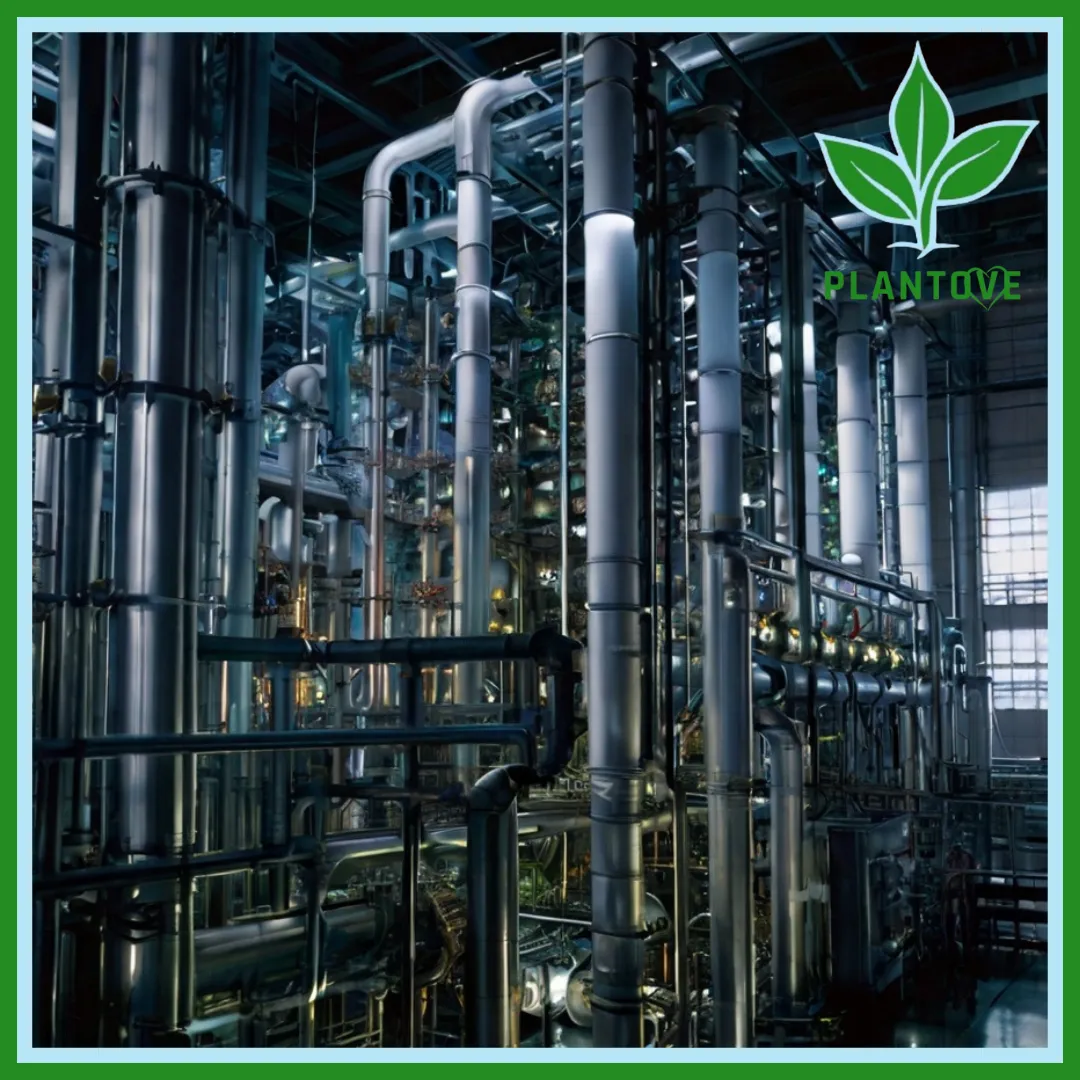Chemical plants are industrial facilities designed to carry out large-scale chemical reactions, transforming raw materials into valuable products. The efficiency of these reactions plays a critical role in the output, cost-effectiveness, environmental impact, and safety of the plant. But are chemical plants do efficient reactions ? This article explores that question by delving into the processes behind chemical plants, their uses, potential dangers, and how these facilities manage to perform their crucial functions.
What Are Chemical Plants Used For?
Chemical plants serve as the backbone of many industries, including pharmaceuticals, petrochemicals, and agriculture. They are used to produce essential chemicals for various applications, such as:
- Pharmaceuticals: Chemical plants produce raw materials for drugs and medicinal compounds that keep us healthy.
- Fuels: Petrochemical plants transform crude oil into gasoline, diesel, and other fuels we rely on daily.
- Plastics: Many everyday products, from packaging to toys, come from chemical plants that process polymers into useful items.
- Agriculture: Fertilizers, pesticides, and herbicides are created in chemical plants to enhance food production and support farming activities.
- Textiles: Synthetic fibers like polyester and nylon are produced through complex chemical processes in plants.
In short, chemical plants are vital in transforming basic materials into products that power industries and sustain modern life. Without them, many of the goods we use every day would not exist.
How Do Chemical Plants Carry Out Efficient Reactions?
To ensure efficiency, chemical plants focus on several important factors. These include optimizing reaction conditions, energy management, and the use of catalysts. Let’s look at how these elements work together to ensure efficient reactions:
- Optimization of Reactions: Chemical plants aim to maximize the yield of desired products while minimizing waste. They do this by fine-tuning parameters such as temperature, pressure, and reaction time. This way, they can get the most out of the raw materials they use.
- Catalysts: Catalysts are substances that speed up reactions without being consumed. Their widespread use in chemical plants helps lower the energy required for reactions, making processes more efficient and cost-effective.
- Energy Management: Plants often integrate heat recycling into their processes. For example, heat generated in one process can be used in another. This method, known as heat integration, reduces energy waste and improves overall efficiency.
- Continuous Processes: Many chemical plants operate non-stop to maintain a steady production flow. This reduces downtime and ensures higher overall productivity.
By considering these factors, chemical plants can carry out highly efficient reactions, ensuring that resources are used effectively, and costs remain manageable.
Are Chemical Plants Dangerous?
When asking whether chemical plants are dangerous, the answer is more complex than a simple yes or no. While chemical plants have inherent risks due to the materials they handle, stringent safety protocols and regulations significantly reduce these dangers. Here are some common risks and how they are managed:
- Chemical Leaks and Spills: If toxic chemicals are not properly contained, they can leak into the environment. To prevent this, chemical plants are equipped with advanced containment systems to handle any potential hazards.
- Explosions and Fires: Many chemicals are flammable or explosive. Chemical plants mitigate these risks by using special safety measures such as fireproof materials and explosion-resistant equipment.
- Air and Water Pollution: Chemical plants are required to manage their emissions and waste carefully. Even with strict regulations, improper waste management or accidents can lead to environmental harm. To address this, plants often invest in pollution control technologies.
- Worker Health and Safety: Workers in chemical plants are regularly exposed to hazardous materials. To protect them, companies provide personal protective equipment (PPE) and rigorous training on handling dangerous substances.
While the dangers are real, chemical plants invest heavily in safety to minimize accidents and protect workers, nearby communities, and the environment.
Chemical Plant Process: A Step-by-Step Guide
The chemical plant process involves several carefully controlled stages. Each stage is designed to ensure that raw materials are transformed into valuable products as efficiently and safely as possible. Here’s how the process works:
- Raw Material Handling: The process starts with receiving and storing raw materials. These materials can come in various forms—gases, liquids, or solids—and require specific handling methods.
- Reactions: Chemical reactions occur inside large reactors. These reactors maintain controlled conditions such as temperature and pressure to facilitate efficient chemical transformations.
- Separation and Purification: After the reaction, the products need to be separated from by-products and impurities. Plants use techniques like distillation, filtration, or chromatography to achieve this.
- Recycling of By-products: Many by-products generated during reactions can be reused in other processes. Recycling by-products not only improves the efficiency of the plant but also reduces waste.
- Packaging and Distribution: The final step involves packaging the products for distribution. This could include bottling, canning, or storing the products in bulk containers before they are shipped to other industries or consumers.
By following these steps, chemical plants can carry out their operations smoothly and ensure that their processes are efficient, safe, and profitable.
List of Chemical Plants
Here’s a list of chemical plants that are well-known for their global operations and innovative processes:
- BASF: With plants in Europe, Asia, and the Americas, BASF is one of the world’s largest chemical companies. They produce chemicals used in various industries, including plastics and agriculture.
- ExxonMobil Chemical: Known for their large petrochemical plants, ExxonMobil produces fuels, lubricants, and plastics that fuel industries worldwide.
- Dow Chemical: Dow Chemical operates globally, producing everything from specialty chemicals to plastics used in consumer goods.
- SABIC: Headquartered in Saudi Arabia, SABIC is a major producer of chemicals, fertilizers, and metals, serving industries across the globe.
- DuPont: DuPont is a pioneer in chemical innovation, with plants producing specialty chemicals, advanced materials, and solutions for sustainable development.
These companies are just a few examples of the vast network of chemical plants worldwide that provide essential products to industries and consumers alike.
Common Challenges in Chemical Plants
Operating a chemical plant efficiently requires overcoming several challenges. Some of the most common ones include:
- Environmental Regulations: Governments enforce strict regulations to limit emissions and waste. To comply, chemical plants must invest in advanced pollution control technologies, which can be costly.
- Energy Costs: Chemical reactions require significant amounts of energy, and balancing these energy needs with operational costs is a constant challenge for plant managers.
- Supply Chain Disruptions: Chemical plants often source raw materials globally. Any disruption, such as political instability or natural disasters, can significantly affect production and costs.
- Innovation and Sustainability: As industries push for greener technologies, chemical plants must innovate to stay competitive. This includes developing processes that minimize waste and reduce reliance on non-renewable resources.
Enhancing Efficiency in Chemical Plants
To stay competitive and environmentally responsible, chemical plants continually seek ways to improve efficiency. Several strategies help them achieve this:
- Automation and Artificial Intelligence: Automating processes reduces human error and increases productivity. Additionally, artificial intelligence can help predict system failures and optimize reaction conditions.
- Sustainability Initiatives: Many chemical plants are investing in renewable energy sources to reduce their carbon footprint and contribute to global sustainability goals.
- Waste Reduction Techniques: By improving reaction yields and recycling by-products, plants reduce waste, which leads to more efficient operations.
Conclusion
In conclusion, are chemical plants do efficient reactions? Yes, they do—through a combination of advanced technologies, careful process management, and continuous optimization. Chemical plants play a vital role in industrial production, transforming raw materials into valuable products. Though they present challenges and risks, these facilities continue to innovate, improving their efficiency and minimizing their environmental impact.
Chemical plants are an essential part of modern life, and with the right safety measures and technological advancements, they will remain efficient and sustainable for years to come.
FAQs
- What are chemical plants used for? Chemical plants produce a wide range of chemicals and materials, from fuels to pharmaceuticals.
- Are chemical plants dangerous? While they handle hazardous materials, strict safety protocols help minimize risks.
- How do chemical plants increase efficiency? Efficiency is improved through the use of catalysts, heat integration, and continuous process optimization.
- What are some famous chemical plants? Companies like BASF, ExxonMobil, and DuPont operate well-known chemical plants worldwide.
- What challenges do chemical plants face? Environmental regulations, energy costs, supply chain disruptions, and the need for innovation are some common challenges chemical plants face.

